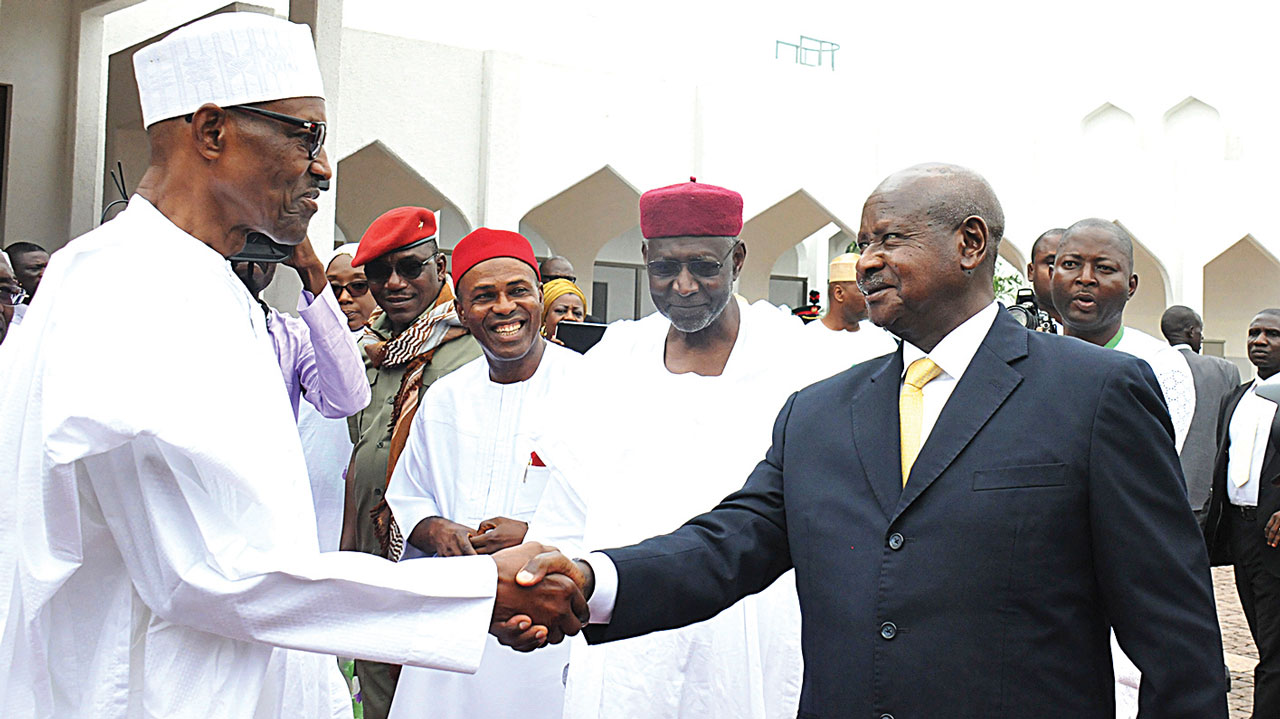The Ugandan economy is emerging from the devastating impact of the COVID-19 (coronavirus) health pandemic, but prospects for growth are undermined by increasing pressure on its natural resources, according to the latest World Bank economic analysis for the country.
The 17th Uganda Economic Update (UEU), From Crisis to Green Resilient Growth: Investing in Sustainable Land Management and Climate-Smart Agriculture, says that the COVID-19 shock caused a sharp contraction of the economy to its slowest pace in three decades. Household incomes fell when firms closed and jobs were lost, particularly in the urban informal sector. The country’s Gross Domestic Product contracted by 1.1 percent in 2020, and is estimated to have recovered to 3.3 percent during the 2021 fiscal year.
“Following the job losses and closure of small businesses, many people returned to agriculture and other natural resources dependent activities to manage and survive the crisis,” said Tony Thompson, World Bank Country Manager for Uganda. “This further strains natural resources, which were already under pressure from rapid population growth, urbanization, a refugee influx and the country’s drive for industrialization.”
From the severe contraction in economic activity and its subsequent impacts on livelihoods during 2020, the report notes that signs of recovery have strengthened, underpinned by improved business and trading conditions as COVID-19 restrictions ease. Domestic investments picked up during the last quarter of 2020 in line with global invest recovery. Manufacturing and construction recovered during the quarter ending March 2021 while the cash crop sector has sustained agricultural sector growth.
The economic growth outlook is 4.6 percent in the 2022, and acceleration to 6.4 percent in the 2023 fiscal year, as domestic demand conditions improve, and global recovery continues as COVID-19 vaccines are rolled out.
The UEU says that Uganda’s immediate priority remains to save lives by intensifying measures to limit the spread of the coronavirus disease. Yet, the report says sustaining recovery will require the government to manage emerging risks including from widening fiscal deficits, escalating costs for small businesses, and climate shocks and loss of its natural capital.
“As the crisis abates, fiscal consolidation and prioritization of spending towards human capital development and greener investments will be the lynchpin into a greener, resilient and inclusive recovery,” said Rachel Sebudde, World Bank Senior Economist and lead author of the report.
The significant shift of Ugandans to agriculture in response to the crisis has heightened the urgency for the country to enhance sustainable use of natural resources. According to the report, land degradation, deforestation and climate risks contribute to the country’s economic vulnerabilities and poverty. Annual decline in forest cover, by 2.6 percent, is one of the highest rates of forest loss globally and climate risks, including slow onset change and extreme events exacerbate this natural capital degradation.
The combined cost to the economy of land degradation and unsustainable soil erosion, is estimated at 17 percent of gross domestic product (GDP). Environmental degradation can cause a loss of 27 percent of agricultural GDP, says the report.
The World Bank suggests the macro-economic recovery and stimulus packages to be combined with structural measures that will sustainably increase productivity and build resilience to enhance livelihoods, the economy and general well-being.
“Farmers and producers need greater access to appropriate financial incentives and instruments to overcome the cost barrier adoption of sustainable land management and climate smart agriculture,” said Pushina Ng’andwe, World Bank Senior Agriculture Economist and report co-author.
The Bank also recommends that the government to promote sustainable land management practices to protect, conserve and ensure better use of land, soil, water, and biodiversity resources, while restoring degraded resources and their ecosystem functions. Encouraging climate-smart agricultural practices will enhance resilience, the UEU says, as well as reduce greenhouse gases emissions, and boost national food security.

 Naira4 weeks ago
Naira4 weeks ago
 News3 weeks ago
News3 weeks ago
 Education4 weeks ago
Education4 weeks ago
 Social Media4 weeks ago
Social Media4 weeks ago
 Technology4 weeks ago
Technology4 weeks ago
 Dividends4 weeks ago
Dividends4 weeks ago
 Investment4 weeks ago
Investment4 weeks ago
 Economy4 weeks ago
Economy4 weeks ago





















